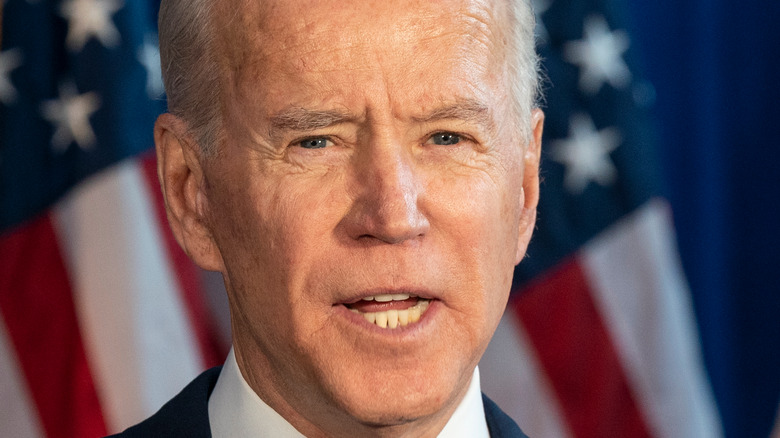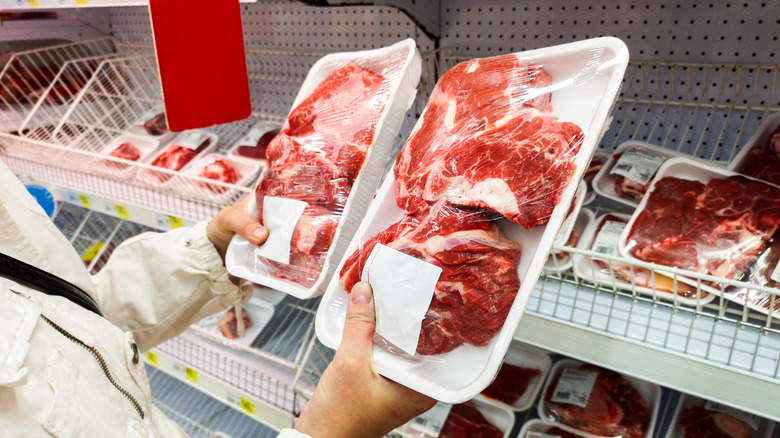How Biden's Plan To Lower Gas Prices Could Impact The Cost Of Meat
While your budget for gas is expected to get smaller come summer, your budget for groceries may have to increase as a result. President Joe Biden announced (via CNN) that his administration is taking steps to combat rising fuel prices by temporarily permitting the sale of E15, a blend of gasoline that contains 15% ethanol. Due to its exacerbated affect on the environment during the heat of the summer, E15 sales are usually prohibited from June to mid-September. This year, however, the Environmental Protection Agency is issuing an emergency waiver to allow it as per President Biden's request, and it's estimated to save customers about 10 cents per gallon each time they fill up their tank.
So what does this have to do with the cost of food? For starters, ethanol is a biofuel. As The Washington Post explains, to make ethanol you need corn, and with President Biden's new gas plan, that means much of the crop from corn growers in the Midwest will now be going to ethanol production. While you might assume this would only create a shortage in food products that require corn and corn flour, it also directly impacts meat. Corn feed is one of the biggest expenses of the commercial livestock industry, Forbes reports.
History could repeat itself
Corn prices are already high — and Wall Street Journal reports they nearly doubled in 2021. The whopping 50% price increase has come as a result of China importing more corn from the U.S., a poor harvest season in the corn-growing regions of South America, and a higher demand for ethanol gas due to more people being on the road with COVID settling down and the economy reopening. The last time corn prices soared this high, they stayed that way from 2010-2014, Forbes says, thanks to a combination of environmental drought and global recession. Being that corn sustains the commercial livestock industry, it eventually forced many major and independent meat producers into bankruptcy.
Currently the prices of beef, chicken, and pork are sitting higher than normal, but Tyson CEO Donnie King explained in an earnings call in March (via CBS) that it's largely due to the supply chain crisis, labor shortages, and inflation. A corn shortage on top of that, however, could cause meat producers to struggle and prices to hike even more. This may just be the tradeoff for lower gas prices, but it'll certainly test how much consumers are willing to pay for a store-bought steak.

